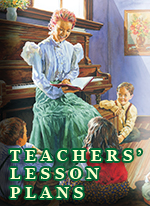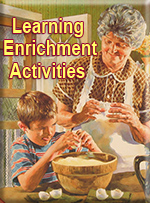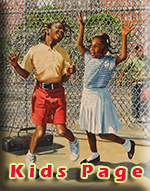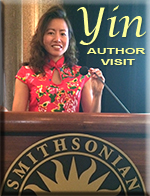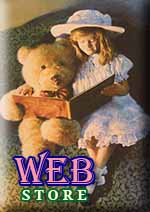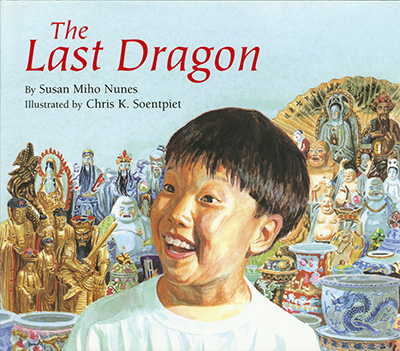|

ABOUT THIS BOOK:
The
dragon hung in the window of the Lung Fung Trading Company on Jefferson
Street, collecting dust, cobwebs, and bug skeletons.
"A very sad
dragon, if you ask me," Great Aunt says disapprovingly.
Peter Chang wants
the dragon anyway. He wants to bring the Last Dragon--faded, ripped, blind--back
to life.
But where to begin?
With Great Aunt, of course! And soon Peter turns the Chinatown summer
he was dreading into an amazing adventure.
MY THOUGHTS OF “THE LAST DRAGON”:
I had the wonderful opportunity to work with editor, Dorothy Briley at Clarion Books. At the time, Chinese
New Year celebration passed just as I was about to start the illustration
process. So I missed the opportunity to take pictures to document the
event. However, I was able to recreate the festivities with help of Chung
Wah Senior Citizen center in New York's Chinatown. I was invited to take pictures and had no problem enlisting volunteers to pose as models. While there, they
also shared with me the Chinese customs and how they celebrate Chinese
New Year and what the dragon means to the Chinese community.
Interesting fact: The author, Susan Miho Nunes wrote this story
based on San Francisco’s Chinatown, but I illustrated the
story to reflect New York City’s Chinatown. -Chris Soentpiet
 |
Susan Miho Nunes is very interested in the mix of cultures that make up American life. Nunes, a native of Hawaii and now a resident of California, has Japanese and Portuguese ancestry. Her son and nephews share this background, as well as different combinations of Jewish, Persian, African American, and American Indian ancestry.
Her interest in blended cultures is reflected in Nunes's book The Last Dragon. She explains, "My mother used to say that the problem with children is that in time they wipe out your history. Indeed, here in America that history is sometimes lost in the great brew. On one level, then, The Last Dragon is about a child who discovers something unique about himself and his culture. But I hope this 'message' doesn't drown out other points. There is something about this dragon." |

BOOK REVIEW:
"When Peter Chang's parents send
him to Chinatown for the summer to stay with his great aunt, he feels
alienated and homesick-until he discovers a worn-out dragon, large enough
for 10 men to carry, crammed in a shop window.
His aunt reluctantly agrees to let him take it home, and he embarks on
a summer long quest to restore the wrecked bundle of silk and wood to
its former glory. He involves many others in the project: the tailor,
Great Aunt's mahjongg friends, the kite-maker, the herbalist, an artist,
and, at last, the Buddhist priest, all of whom are touched by Peter's
determination. Watercolor paintings, reminiscent of Ted Lewin's work,
lovingly depict in glorious and enticing detail a close-knit Cantonese
community in an unnamed big-city Chinatown...The well-written text, as
substantial as the artwork in specific and authentic details, draws readers
into Peter's new world. A welcome story about contemporary Chinese life."
-School Library Journal
"Nunes' text builds to a satisfying conclusion.
The expansive watercolor illustrations are warm, colorful, and full of
details unique to Chinatown." -Booklist

|
Theme: THE LAST DRAGON can be used to introduce your students
to the Chinese New Year or Lunar New Year, Chinese/Asian-American communities, friendship between
young and older generations.
Pre-reading:
Show the students the cover of the book, read the title, author
and illustrators name. Ask them why they think Peter does not
want to go away for the summer to visit with his great aunt. Ask
if there is anyone who did not want to go away for the summer - why?
The location of the book is set in Chinatown -- tell the students
where they can find their nearest Chinatown. Have the students look
at a map and find it.
Reading:
As you read and show the illustrations have the students look closely
at the drawings. What details can they find in the pictures? Have
them look at the face of Peter's expressions -- how do they change
during the story. Ask the students how they think the character
is feeling. Can they tell by the illustrations?
Interview:
Talk with some seniors. Ask them if they can help draw a
dragon on a piece of paper. They'll be happy at the student's interest
in spending time with them. Use this opportunity to talk with them
about their life-write their story.
Geography:
Have the students plan a trip to Chinatown. What would they buy?
What type of foods are available in Chinatown? Would they try these
foods? Have the students look at a globe to find China and the United
States.
Social Studies:
Learn how other cultures celebrate Lunar New Year. Read BROTHERS written by Yin to find out how Chinatown came to be.
Talk about immigration
-- are there any immigrants in the class -- list the countries their ancestors came from. Make a guidebook to Chinatown-- cover
topics like cities where a Chinatown can be found, customs, traditions,
folklore, early history, food, games, traditional dress.
Literature:
Read other book about Lunar New Year/Chinese New Year such as CELEBRATING
CHINESE NEW YEAR by Diane Hoyt-Goldsmith, GUNG
HAY FAT CHOY by Terry Behrens,
LION DANCER by Kate Waters. Look for other books by Susan Miho
Nunes or Chris Soentpiet. If you really enjoyed THE
LAST DRAGON write a review and post it on-line at Amazon.com
or Barnesandnoble.com
so others can enjoy your reading experience.
Art: Make
a paper dragon and have each student work on a section of the dragon's
body. Use paper, fabric, yarn and other craft items. Then connect
the pieces of the dragon to make a long body. |
|
